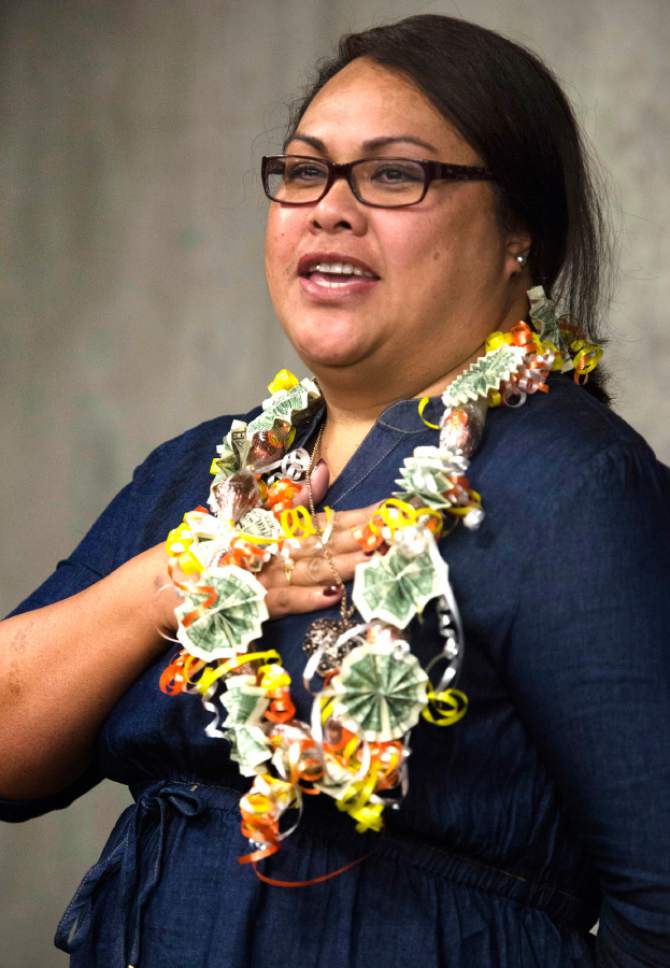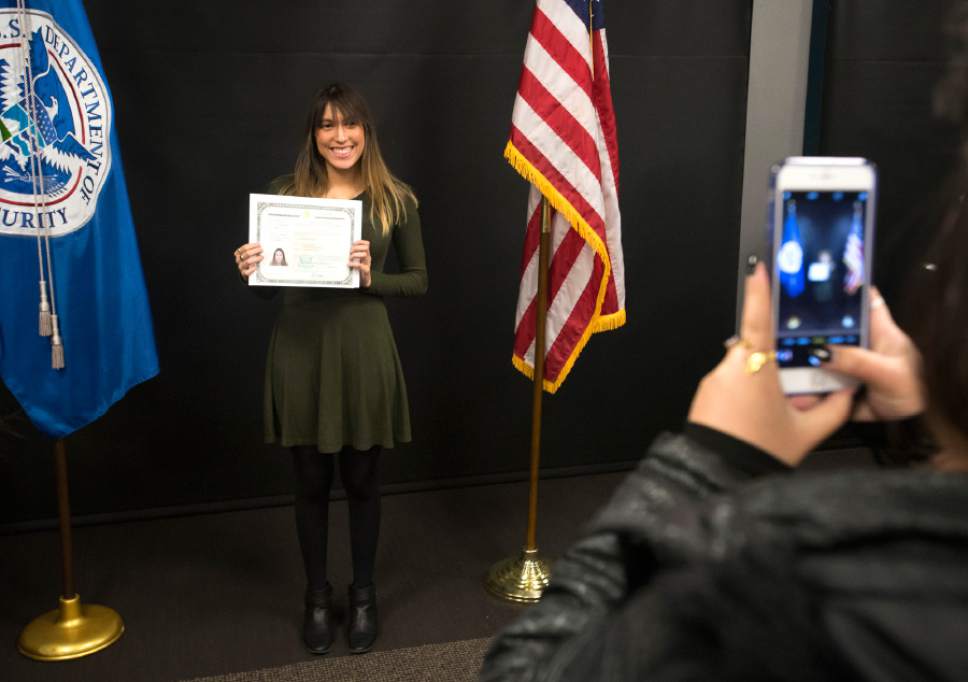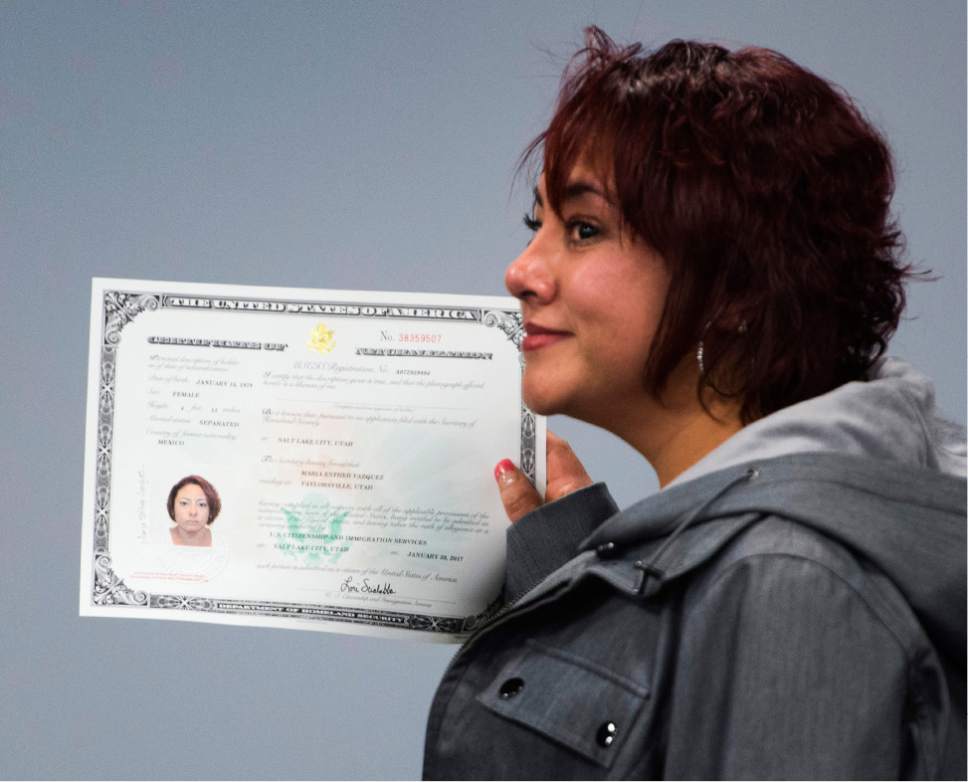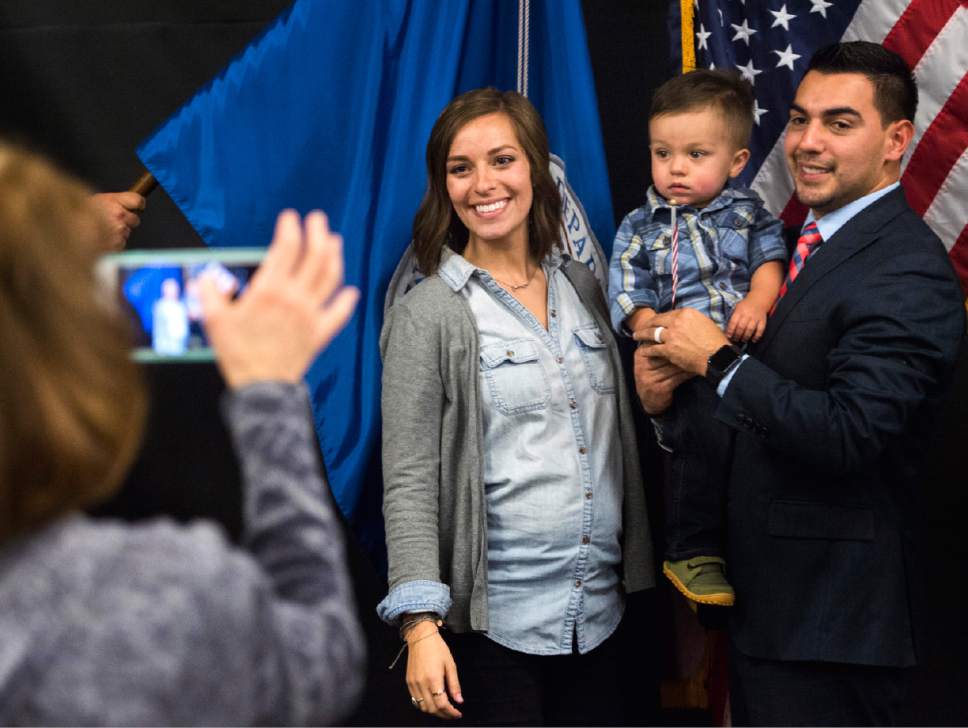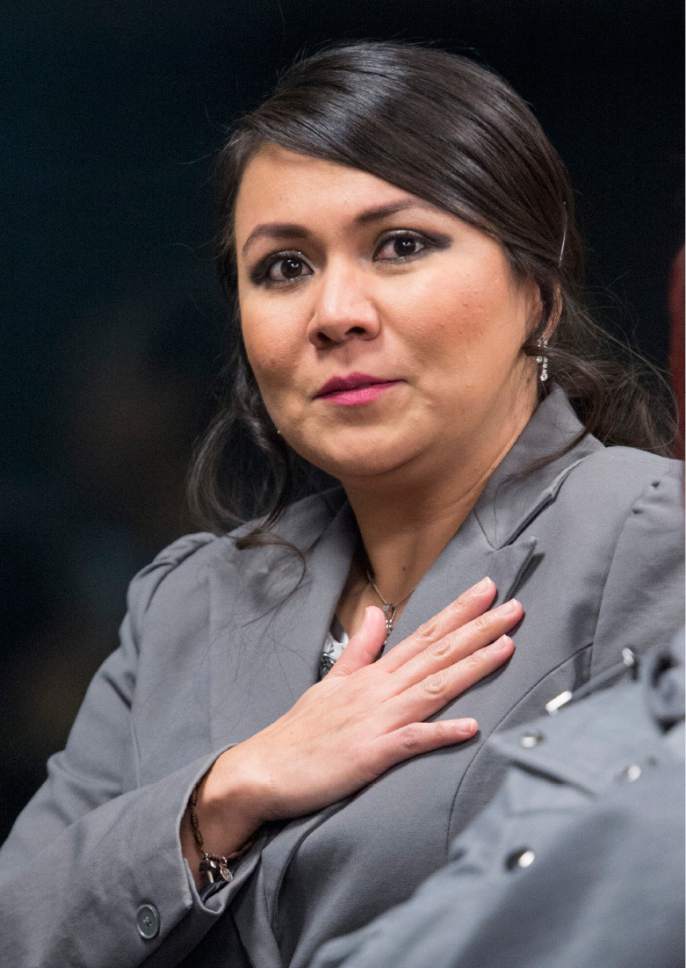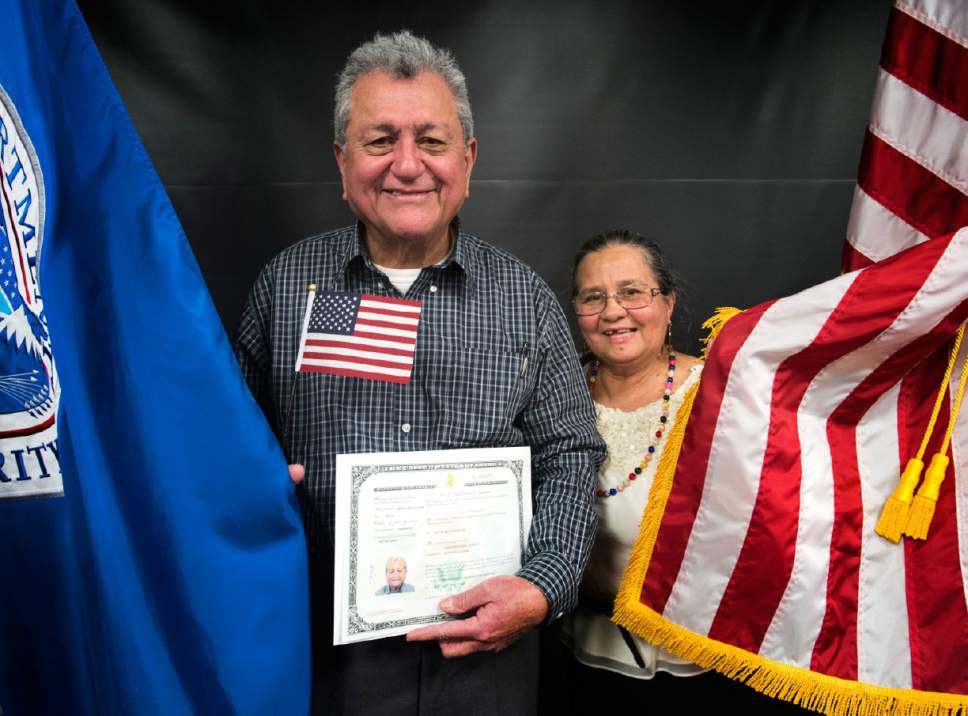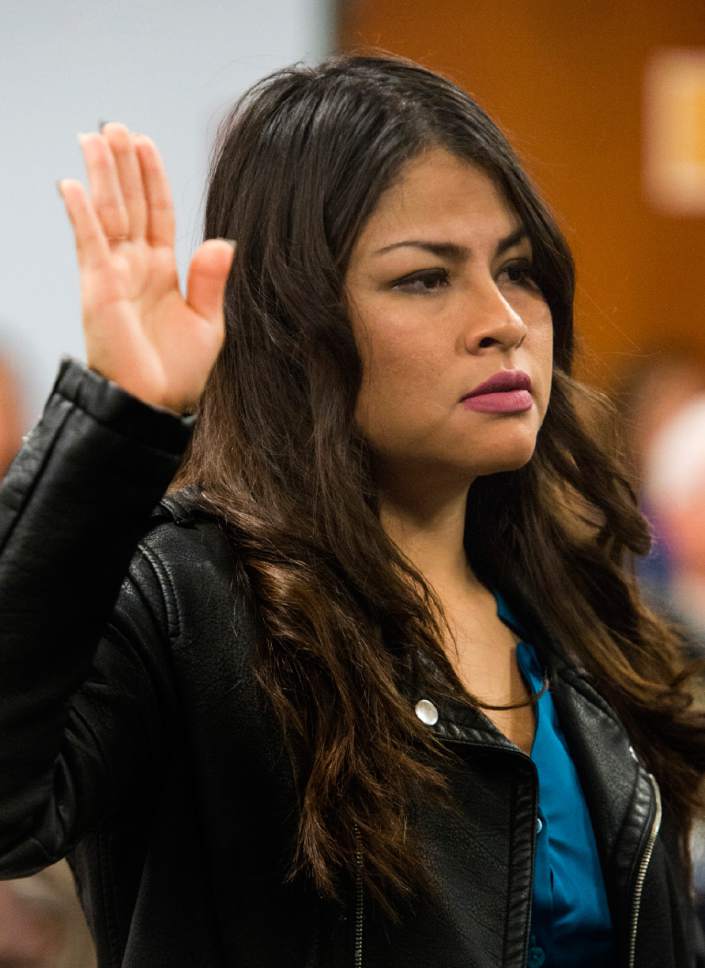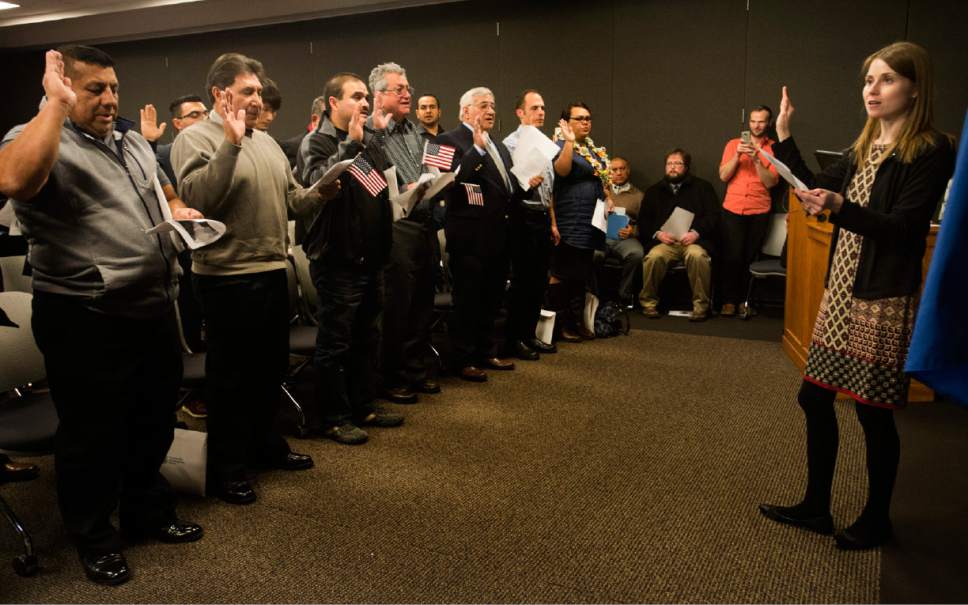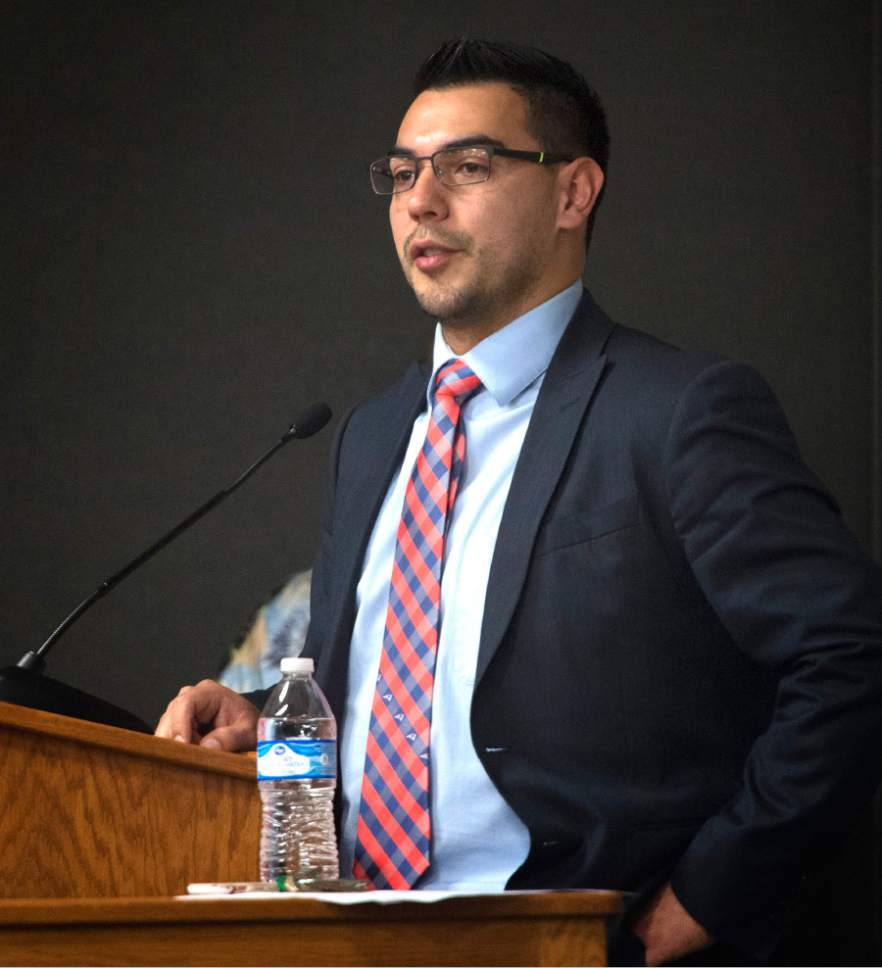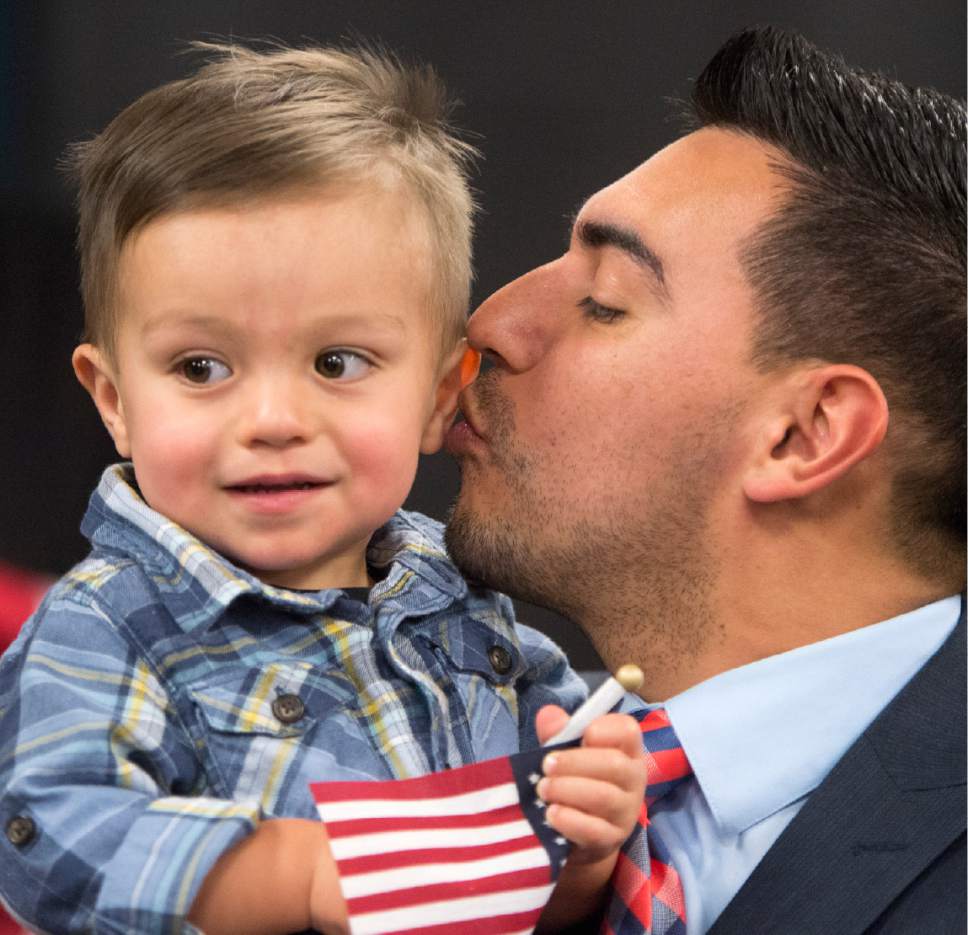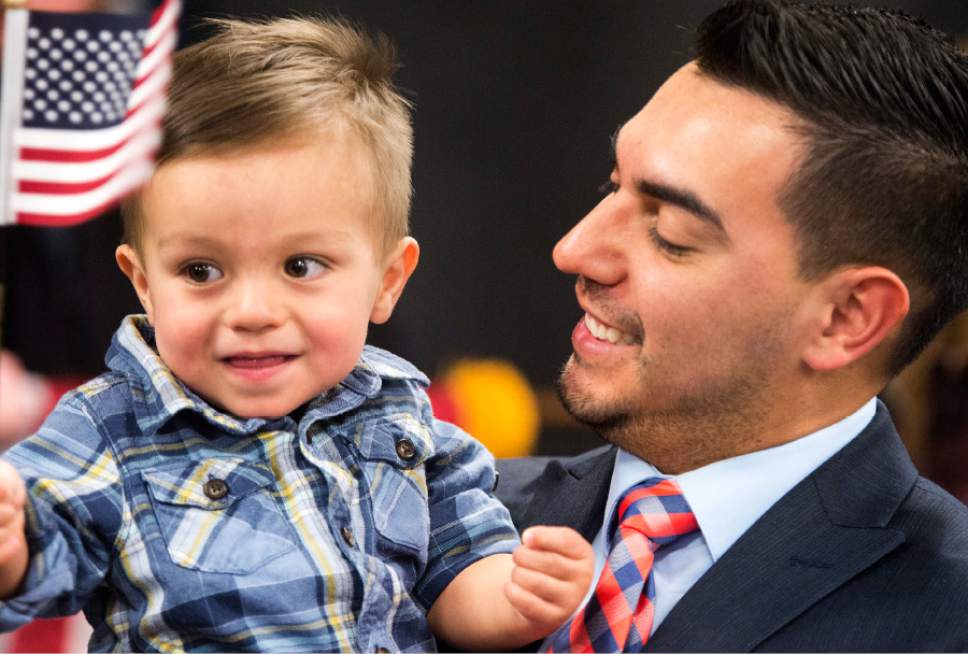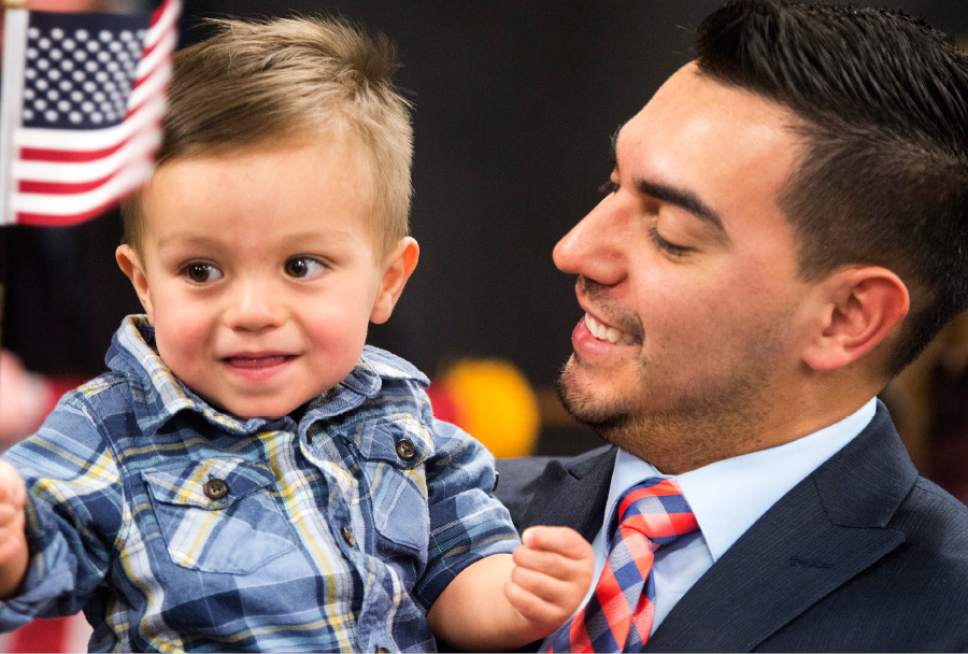This is an archived article that was published on sltrib.com in 2017, and information in the article may be outdated. It is provided only for personal research purposes and may not be reprinted.
Aroldo Lainez went to bed Monday knowing he would no longer face the threat of being separated from his wife through deportation, and he wasn't alone in that comfort.
The United States grew by 30 citizens after a brief ceremony Monday night at the University of Utah, where there was a sense of joy and relief among families that would no longer have to worry about being separated from one another because of an abrupt immigration policy change.
And that's been a constant fear for some in recent days.
"I was kind of worried because you know the things that are happening right now with him," Dulce Negreros said as her two sons ran around the room in the College of Social Work.
Within days of taking office, the "him" Negreros referred to — President Donald Trump — signed an executive order directing federal agencies to begin building a wall on the U.S.-Mexico border. On Friday, a second executive order blocking immigration from residents of several Muslim-majority countries led to chaos at airports and fear among the Utah group days before they were to become citizens.
During a 30-minute event, citizenship candidates recited the Oath and Pledge of Allegiance to the United States to cap years of waiting and work.
Many of the new citizens — from 14 countries — had spouses and children who were citizens, and several were relieved that they were no longer subject to changes in the immigration system.
Fourteen of the new citizens immigrated from Mexico, which bore much of Trump's campaign criticism.
"I was worried about all the new executive reforms that Donald Trump signed," said Paola Velazquez, of Jalisco, Mexico, who was a permanent U.S. resident for nearly a decade before undertaking the naturalization process six months ago.
Despite gaining the rights guaranteed to all Americans after living here for 20 years, Negreros said she was nervous.
"Even right now, just because they look at you and you look Hispanic or different, they just think you are something different," she said. "Even if you know you have the rights because you're a citizen, there's the hate that people have. You're afraid about it."
She also feared for friends and family in the U.S. who aren't citizens, and for those still in Mexico.
Alicia Lainez became a citizen three days after Trump took office; her husband would watch Trump write multiple immigration orders before his citizenship day would come Monday.
"It's very tense here," said Alicia Lainez. "I am happy because I like the United States. I love it."
Both were happy to gain citizenship after moving from Honduras five years ago to join family in Utah. The two plan to practice their English, and they look forward to voting in elections and exercising other rights.
"It's a dream," Aroldo Lainez said. "It's a beautiful dream."
Jason Carrillo, originally of Costa Rica, said he decided to become a citizen when he thought about what might happen when Trump took office.
"It was mostly not knowing what was going to happen after President [Barack] Obama left that kind of pushed me to say, 'Yeah you've gotta go and get this done,' " Carrillo said.
After receiving his certification of citizenship, Carrillo spoke to the crowd and urged the audience to look out for one another and to work hard.
"Becoming a citizen," he said, "it's an outlook to my family to know that the American dream is possible
Twitter: @TaylorWAnderson


